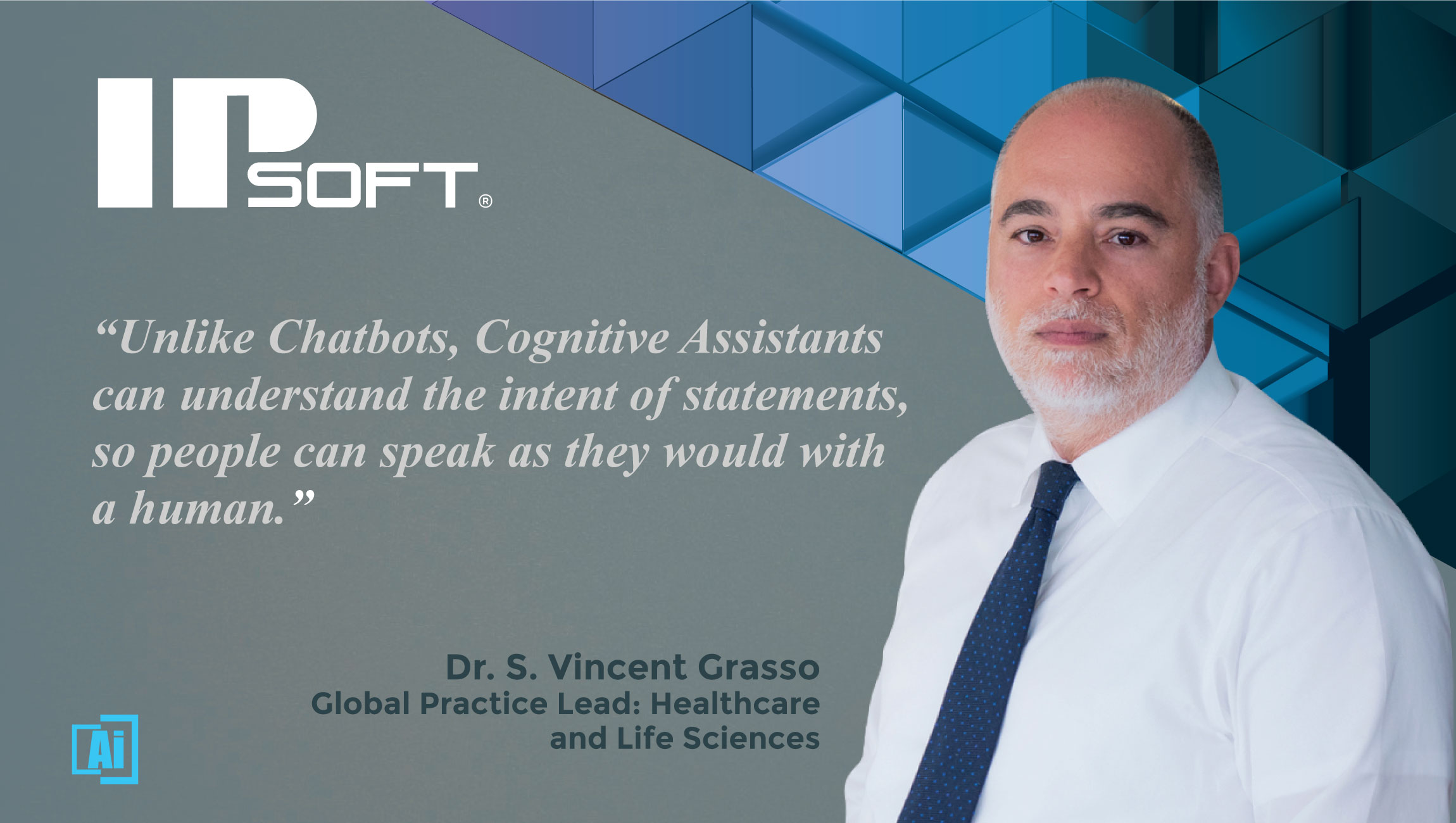AiThority Interview with IPsoft’s Dr. S. Vincent Grasso, Global Practice Lead- Healthcare

Hi Dr. S. Vincent. Tell us about your role at IPsoft.
I am IPsoft’s Global Practice Lead -Healthcare & Life Sciences.
I am responsible for the design and global deployment of Clinical Information System. We use AI Ecosystem assets such as Conversational Computing, RPA, and Machine Learning.
Could you tell us if Conversational AI can really solve the obesity epidemic? Why do you think AI can help reduce the obesity crisis?
The global obesity crisis continues to rise – with figures showing it has tripled since 1975.
The UK is no exception, Public Health England reports that obesity is responsible for more than 30,000 deaths each year in the UK, contributing to serious health conditions including cardiovascular disease, type 2 diabetes, and certain cancers.
Fortunately, it is preventable, addressable, and its resolution positively impacts other comorbidities, such as diabetes and hypertension. At the heart of reversing this trend is finding a way to help people change their behavior and build a healthier relationship with food.
Doctors don’t have the capacity to do this alone – behavioral change is a long and time-consuming process, with patients needing regular and extended check-ins that allow the doctor to ‘nudge’ them towards better choices. And, this is where I believe Conversational AI can support doctors: providing more regular touchpoints with patients to help nudge them down the right path.
Recommended: Sutter Launches Ferrum’s AI Quality Platform to Prevent Medical Errors, Fight Cancer, and Reduce Healthcare Costs
How does it work with patients?
Doctors will typically create health plans with a series of smaller, achievable goals that will help that person make significant behavioral changes over an extended period of time. Enrolled patients will then have regular conversations with Cognitive Assistants to educate, engage and help them to adhere to their health plan.
This may start as a simple conversation asking about their diet over the past couple of days, with the Cognitive Assistant then providing useful nudges that will help them achieve their goal. For example, asking- “How much dressing did you have on the salad?” Many people don’t realize each spoon of olive oil has 120 calories.
Some previous Healthcare Chatbots have faced criticism in the past. Are IPsoft’s Cognitive Assistants up to the task?
Unlike chatbots that react solely to keyword-driven instructions and follow limited, static decision trees, Cognitive Assistants can understand the intent of statements, so people can speak as they would with a human. They can also easily switch subjects, are emotionally empathetic, and can respond to a wide range of questions for which they are trained so it feels like a natural conversation.
It’s also important to recognize that these cognitive assistants wouldn’t operate in silo: if patients were to ask questions the cognitive assistant can’t respond to or indicate that there’s a more serious issue that needs to be addressed, the cognitive assistant would then notify the doctor who can proactively reach out to the patient.
So, would Cognitive Assistants replace doctors in treating patients using AI?
No, doctors will always be the patient’s primary carer – creating the health plan and having regular catch-ups to help them reach their goals. The cognitive assistant enables them to augment their ability to continuously support patients when doctors don’t have the capacity to have the regular, extended conversations needed to ‘nudge’ them to make behavioral change.
Furthermore, the information gleaned from patients’ conversations with the cognitive assistant convos will help make the time doctors have with them as valuable as possible. Doctors’ deeper understanding of the individual and their situation helps them to better optimize health plans and spend their time with patients discussing the most pertinent issues.
Thank you, Dr. S. Vincent! That was fun and hope to see you back on AiThority soon.
Dr. S. Vincent Grasso is the Global Practice Lead (Healthcare and Life Sciences) at IPsoft.
IPsoft is a disruptive technology company, pioneering innovation in the development and delivery of autonomic and cognitive technologies. From our inception, our founders recognized that automation through digital labor will shape the future of IT and business operations. Inspired by the great minds of the past, we relish the challenge of making what others believe impossible a reality.

Comments are closed, but trackbacks and pingbacks are open.